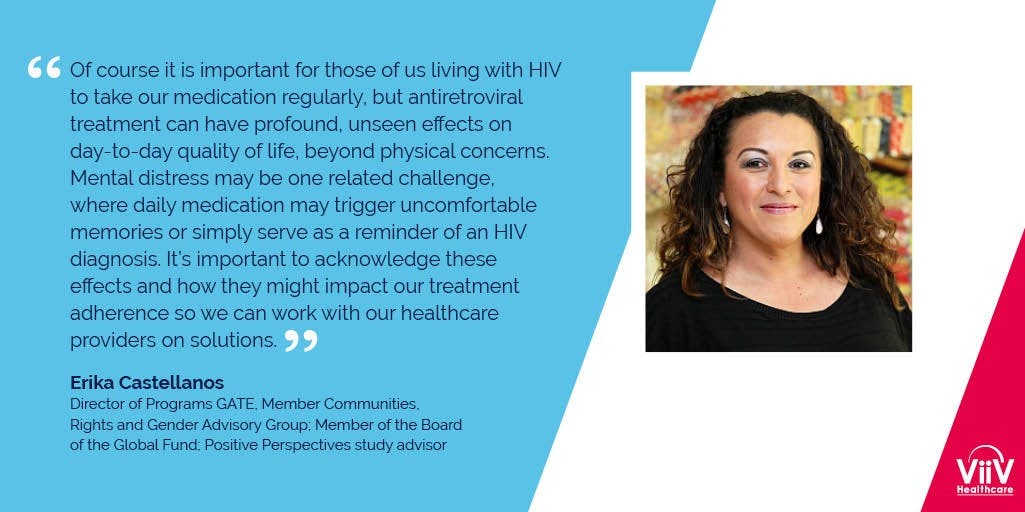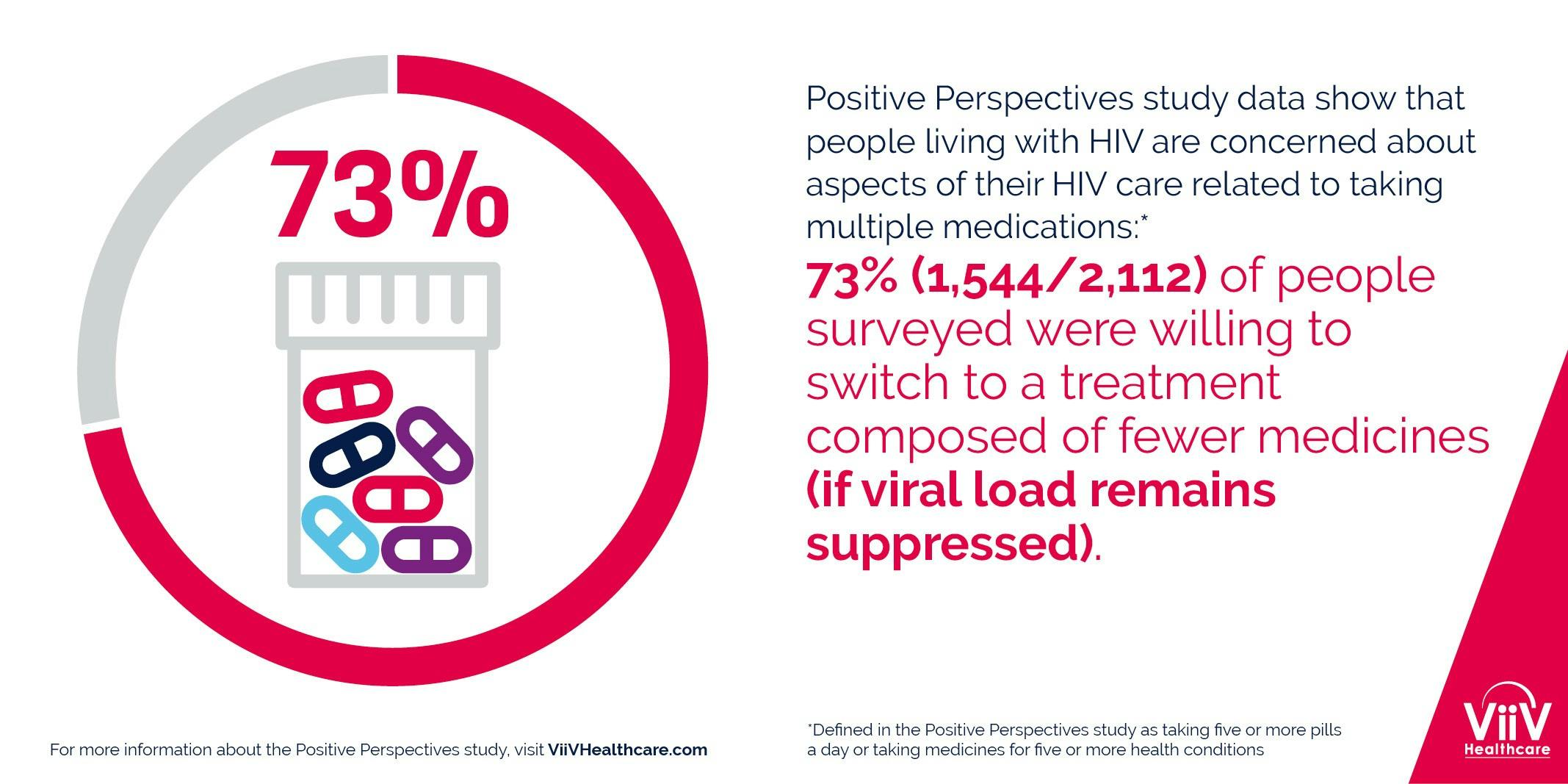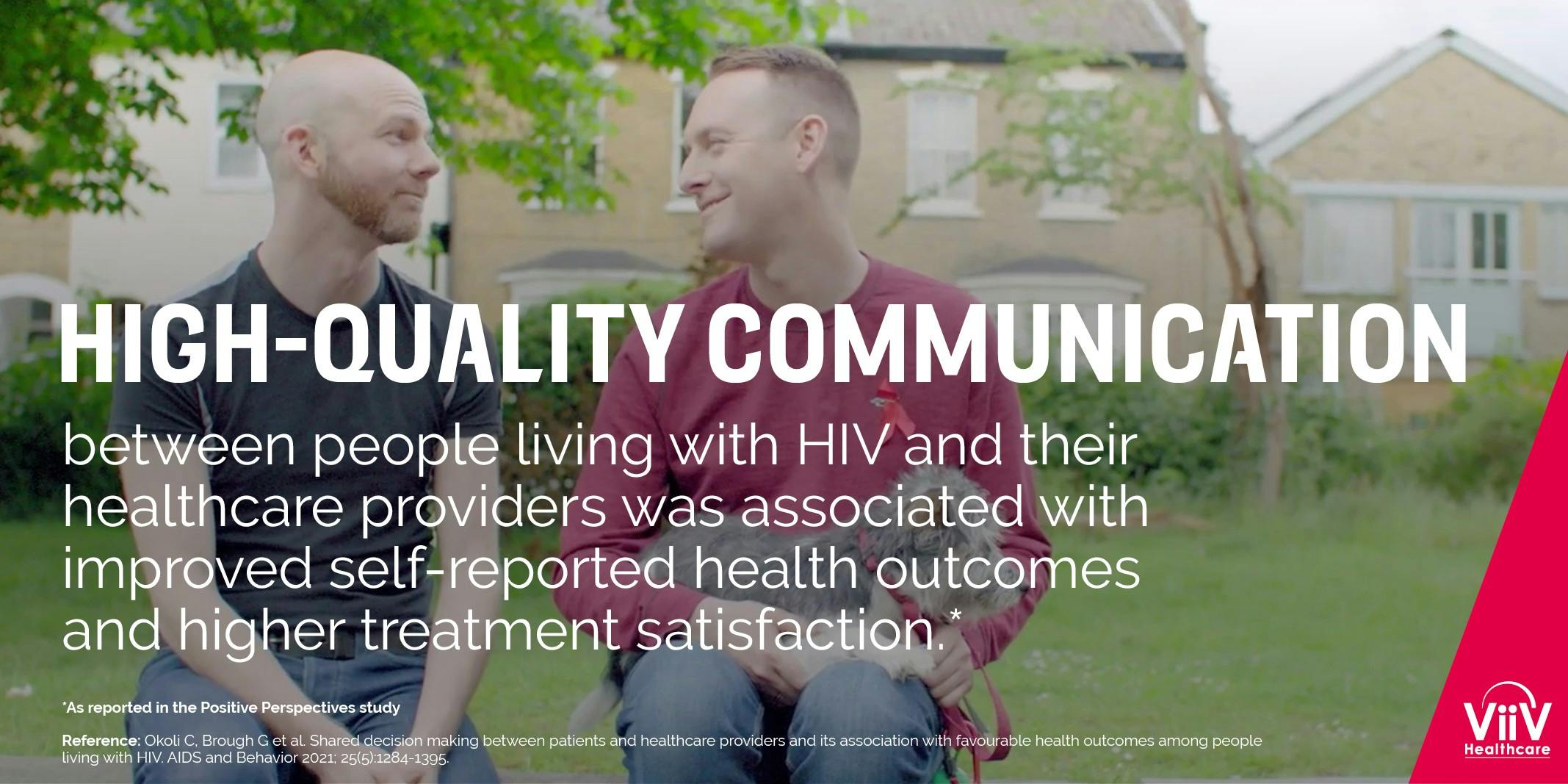A HOLISTIC APPROACH TO HIV CARE PUTS PEOPLE FIRST

1991 was a milestone year in the HIV response. It was the year that US basketball star Magic Johnson revealed he was living with HIV, and the year that Queen frontman Freddie Mercury passed away from AIDS-related pneumonia. It was also the year that I received my own HIV diagnosis. Aged 23, the prognosis for someone like me was bleak, with an estimated life expectancy of just 5 years. However, I have since added 25 years to that and plan on adding another 25, thanks to the development of effective antiretroviral therapy. With current medications, HIV is no longer the untreatable condition that haunted the 80s and 90s, and as the number and type of new medications and dosing regimens increases, so do the benefits for people living with HIV. The introduction of once-a-day pills means that HIV treatment has become much more manageable. More recently, the option of taking fewer medicines over a life time of treatment or not having a daily reminder of your HIV status with the introduction of longer-acting treatments, is a welcome change for some members of the HIV community who might feel that daily treatment can be a harsh reminder of their diagnosis and the stigma they may face as a result.
As the way we view HIV changes, so too must the way we approach treatment. It is not enough to develop medications that suppress the virus without considering how they may affect the people taking them, especially as we are facing an increasingly large population who are now ageing with HIV. Studies like Positive Perspectives grant us a window into the inner thoughts and concerns of people living with HIV relating to their treatment, and it is crucial that we begin to consider approaches to HIV treatment that address these worries and support the best possible quality of life from all angles, at all stages of life.
The Positive Perspectives 2 study is one of the largest, global, HIV patient-reported surveys to date, with 2,389 people living with HIV participating from 25 countries. Participants were asked to rate their own health, how living with HIV impacts their lives and affects their outlook for the future, as well as examining new interactions and relationships with HCPs and their experiences with ART.
Positive Perspectives is an international survey sponsored by ViiV Healthcare in collaboration with a multi-disciplinary Steering Committee that included HIV physicians, people living with HIV and patient group representatives
Ageing with HIV – a complex relationship
Now that effective treatment is widely available (albeit with some key challenges in parts of the world), the number of people living with HIV aged 50 and over is increasing. This has been a pleasant surprise for many of us, as we may have never expected to reach this age. However, adjusting to the fact that we are now going to live into old age brings its own challenges, especially since it has also brought anxieties as to how HIV might impact the ageing process. People living with HIV are at higher risk of co-morbidities compared to the general population – that means they are more likely to require treatment for these illnesses and having to take other medications on top of their HIV treatment, known as ‘polypharmacy’*.1 In fact, the Positive Perspectives study showed People Living with HIV with polypharmacy had significantly poorer self-reported health outcomes, independent of existing comorbidities; their odds of treatment satisfaction, optimal overall health and virologic control were lower by 27%.2 Yet, when it comes to addressing concerns about ageing, I find it helpful to try to remove HIV from the equation as much as possible and encourage others living with HIV to prioritise addressing the things that everyone can do to live well - by improving diet, exercise and wellbeing - regardless of HIV. We also need to consider the needs of those who may face different, more challenging experiences of ageing, for example people from the LGBTQIA community who may not have family support, or migrants who may find it difficult to access social care in a new country and culture. This illustrates the need to take an intersectional approach by joining the dots to ensure that people have a safety net of coordinated health and social care services to support them while navigating their own experiences of ageing with HIV.
Treatment optimisation – care beyond viral suppression
The HIV treatment landscape has taken quantum leaps since the first drugs were approved to treat HIV in the early days of the epidemic. While earlier medications may have proven effective at keeping HIV under control, they were also linked to a host of drawbacks including complex dosing schedules and significant short- and longer-term side effects. Modern treatments, on the other hand, have been developed to better achieve viral suppression with less complex dosing requirements. Nevertheless, it is time we shift our expectations of HIV care even further – we need to take a more holistic, all-encompassing approach that considers how treatment may affect quality of life for those taking it, moving beyond those key measures of viral suppression and minimising side effects. Single tablet regimens taken once daily have been a major advancement in HIV care. This meant that many people living with HIV, myself included, who previously needed to take several different pills, multiple times a day could reap the benefits of effective treatment but in way that was much easier to manage. Single tablets had been able to combine up to four drugs in a single pill, but newer treatments have allowed for a reduction in the number of medicines to achieve control of the virus, utilising fewer drugs to manage HIV. This approach is supported by findings from the Positive Perspectives study which showed that nearly three-quarters of participants were open to taking an HIV treatment with fewer medicines, as long as their viral load remains suppressed. Two of the top three reasons given for switching treatments were to reduce the number of pills taken each day and the number of other co-medications1 taken in addition to their treatments.1 As well as being more convenient for people living with HIV, simplified regimens may also benefit people who experience negative mental or psychosocial associations to their HIV treatment, such as the 58% (1,394/2,389) of Positive Perspectives participants who reported that taking pills for HIV every day was a link to bad memories from their past.3 This is where a shift for some individuals towards longer acting treatments could potentially make an important difference to a person’s mental and emotional wellbeing.
Defined in Positive Perspectives as taking five or more pills a day or taking medicines for five or more health conditions

Despite the progress that has been made, three in five participants, however, still reported gaps in their HIV management and aspired to new treatment choices. This is a stark reminder of the number of people living with HIV who report issues with their treatments despite the range of options available.4 This shows that it is crucial for an individualised, person-centric approach to be taken when addressing HIV treatment, with a clear and coordinated continuum between healthcare teams and their patients, prioritising open and meaningful dialogue.

The value of coordinated care
When it comes to HIV care, focusing on individual needs is key, and our needs as patients may differ over time. If someone is having problems and considering switching their medication, my main piece of advice is always to be clear about what the rationale is, i.e. make sure you are confident about the change and the benefits you are looking for. Discussing such changes and the reasoning behind them with a healthcare provider can ensure that the needs of the person and the most appropriate HIV treatment to deliver that can be met, not to mention the potential benefits of switching to prevent future toxicities as part of preventative medicine. Yet, many people living with HIV still struggle to engage in meaningful, high-quality discussions with their healthcare teams, with 77% (1,847/2,389) of participants in the Positive Perspectives study reporting they had at least one issue they felt uncomfortable discussing with their healthcare providers.5 Different groups may also experience additional barriers or anxieties in relation to their relationship with the healthcare team and struggle to communicate their needs and wishes. For example, men who have sex with women and women living with HIV in the Positive Perspectives study were more likely to report perceived barriers to discussing concerns with their healthcare providers compared with men who have sex with men, yet again illustrating the importance of tailoring HIV care approaches and promoting health equity.6

This approach, where people living with HIV are supported to feel empowered and confident to communicate their concerns with their healthcare team, should be complemented by a model of person-centred care that ensures healthcare providers are asking the right questions and ensuring the person living with HIV feels comfortable and confident enough to answer them. Modern healthcare is shifting into newer, uncharted territories, where initiatives such as telehealth have made it easier to access care in some cases, but also make it easier to forget or miss key issues that may not be apparent at the time, especially when a treatment seems to work “well enough”. Those of us who work in community organisations and peer support must ensure that people living with HIV are empowered to maintain open and meaningful engagement with their healthcare providers. In doing this, we can ensure that care is not fragmented, and that information can be provided as fully as it should be to those that need it most.
Barriers to break – where we stand now in the HIV story
Coordinating how to address and manage our health and wellbeing can be difficult for everyone, not just people living with HIV. However, people living with HIV undoubtedly face their own unique set of challenges, which can be exacerbated by factors such as ethnicity, gender identity, sexuality, drug use and sex work, resulting in intersecting stigmas which further compound that sense of isolation from wider society. HIV stigma and miseducation are still deeply engrained in society, including healthcare. Despite the progress we have made in treating HIV and the wealth of information available, most people still do not understand the fact that people taking effective HIV treatment cannot pass it on through sexual contact, known as Undetectable equals Untransmittable (U=U). This can contribute to many people living with HIV feeling reluctant to reach out when they need help or have questions that need to be answered, highlighting the importance of addressing these pervasive gaps in societal understanding that impede progress. For 40 years in the battle against the Human Immunodeficiency Virus, we have focussed our efforts on the Virus and its suppression. With the huge scientific advances we have seen, we must adopt a more holistic approach to addressing HIV now and in the future with the knowledge that we are already effectively managing the Virus, and aspire to shift the focus to prioritise the Human.
Discover more about the insights and findings from the Positive Perspectives 2 study
References:
- Gimeno-Gracia M, Crusells-Canales MJ, Armesto-Gómez FJ, Compaired-Turlán, Rabanque-Hernández MJ. Polypharmacy in older adults with human immunodeficiency virus infection compared with the general population. Clinical Interventions in Aging 2016 Aug 26;11:1149-57.
- Okoli C, de los Rios P, Eremin A, Brough G, Young B, Short D. Relationship Between Polypharmacy and Quality of Life Among People in 24 Countries Living With HIV. Preventing Chronic Disease 2020;17:290359. DOI: http://dx.doi.org/10.5888/pcd17.190359.
- de los Rios P, Okoli C, Castellanos E, Allan B, Young B, Brough G, Muchenje M, Eremin E, Corbelli GM, McBritton M, Hardy WD, Van de Velde N. Physical, Emotional, and Psychosocial Challenges Associated with Daily Dosing of HIV Medications and Their Impact on Indicators of Quality of Life: Findings from the Positive Perspectives Study. AIDS and Behaviour 2021:25, 961-972. DOI: https://doi.org/10.1007/s10461-020-03055-1.
- de los Rios P, Okoli C, Young B, Allan B, Castellanos E, Brough G, Eremin A, Corbelli GM, Hardy WD, Van de Velde N. Treatment aspirations and attitudes towards innovative medications among people living with HIV in 25 countries. Population Medicine 2020:2(July);23 DOI: https://doi.org/10.18332/popmed/124781.
- Okoli C, Brough G, Allan B, Castellanos E, Young B, Eremin A, Corbelli GM, McBritton M, Muchenje M, Can de Velde N, de los Rios P. Shared Decision Making Between Patients and Healthcare Providers and its Association with Favorable Health Outcomes Among People Living with HIV. AIDS and Behaviour 2020. DOI: https://doi.org/10.1007/s10461-020-02973-4.
- Okoli C, Van de Valde N, Brough G, Hardy WD, Morbelli GM, Allan B, Muchenje M, Castellanos E, Young B, Eremin A, Ramothwala P, de los Rios P. “What about me?” The unmet needs of men who have sex with women and differences in HIV treatment experiences, perceptions, and behaviours by gender and sexual orientation in 25 countries. Poster P016 Presented at HIV Glasgow 2020.
NP-GBL-HVX-COCO-220056
If you get any side effects, talk to your doctor, pharmacist, or nurse. This includes any possible side effects not listed in the package leaflet. You can also report side effects directly via the GSK Reporting Tool link https://gsk.public.reportum.com/. By reporting side effects, you can help provide more information on the safety of this medicine.
If you are from outside the UK, you can report adverse events to GSK/ ViiV by selecting your region and market, here.